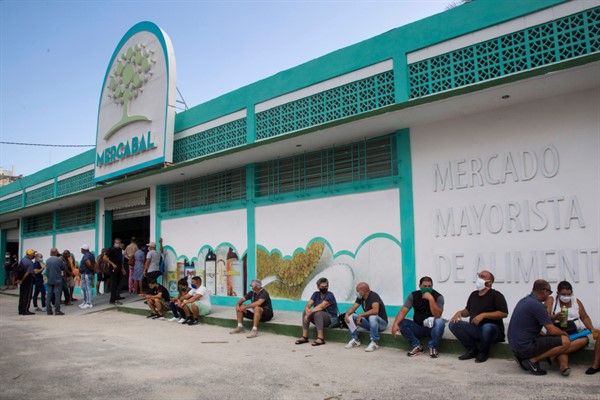Cuba’s economy was already struggling before the coronavirus pandemic, due to persistently poor domestic productivity, declining oil shipments from Venezuela and the ratcheting up of U.S. sanctions. But now, the closure of the tourist sector due to COVID-19 has thrown Cuba into a full-fledged recession, deeper than anything since the economic crisis of the 1990s that followed the collapse of the Soviet Union—what Cubans know as the “Special Period.”
Perhaps paradoxically, the downturn also appears to have broken a logjam of disagreement among Cuba’s senior leaders and accelerated the implementation of economic reforms. Reforms entail risks, President Miguel Diaz-Canel told the Council of Ministers this summer, but “the worst risk would be in not changing and in losing popular support.”
In 2011, the Cuban Communist Party approved a new economic policy to promote growth by giving freer rein to market forces; requiring unproductive state-owned enterprises to make a profit, even if it means laying off workers; promoting small private businesses; and attracting foreign direct investment. Over the ensuing years, however, implementation slowed to a glacial pace, at least in part because of resistance from some segments of the Cuban political elite who stood to lose from the changes. With the economy buoyed by cheap oil from Venezuela and a booming tourist sector, the need for reform was less urgent.

